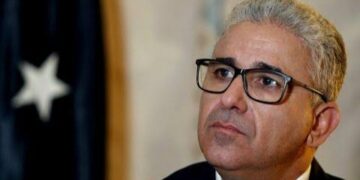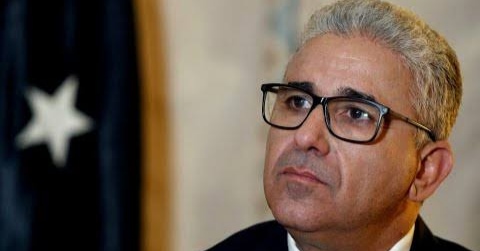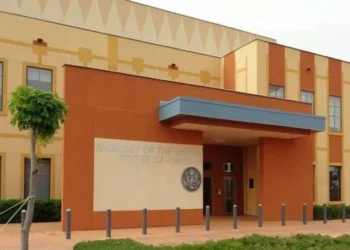By John Ikani
Libya faces a new power struggle after the country’s eastern-based Parliament appointed a second Interim Prime Minister to the existing unity government’s chief Abdulhamid Dbeibah.
The House of Representatives, based in Libya’s east, “unanimously approved” former interior minister Fathi Bashagha “to head the government,” the parliament’s spokesman Abdullah Bliheg said.
The development came just hours after Mr Dbeibah’s convoy was targeted in an assassination attempt.
Late on Thursday, Mr Bashagha who was formerly serving as Interior Minister flew to the capital, Tripoli, promising to “open a new chapter” in Libyan politics.
Thanking Dbeibah for his work, the former fighter pilot said on his arrival at Mitiga airport that he was “confident” that the government would “respect democratic principles” and hand over power.
The appointment of Mr Bashagha is likely to deepen divisions between the eastern-based assembly and the Tripoli administration – raising the risks of more violence as Libya awaits postponed elections.
Dbeibah, a construction tycoon appointed a year ago as part of United Nations-led peace efforts, has vowed he would “accept no new transitional phase or parallel authority” and would only hand over power to an elected government.
The UN will continue to recognise his administration, UN Spokesman Stephane Dujarric said Thursday.
Libya has seen a decade of conflict since the 2011 revolt that toppled dictator Moamer Kadhafi, leaving a patchwork of militias vying for control over an oil-rich country riven by regional divisions.
Experts warned that Thursday’s vote threatens a repeat of a 2014 schism that saw two parallel governments emerge.
“Libya has two prime ministers. Again. Groundhog Day,” Anas El Gomati of Libyan think tank the Sadeq Institute wrote in a tweet.




































